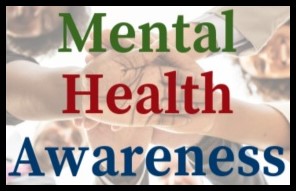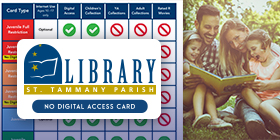 In this installment of our Mental Health Awareness series, we'll discuss dual diagnosis, also known as co-occurring disorders.
In this installment of our Mental Health Awareness series, we'll discuss dual diagnosis, also known as co-occurring disorders.
Comorbidity: "When a person experiences two or more illnesses at the same time, those illnesses are considered 'comorbid.'" - National Alliance on Mental Illness, opens a new window
A specific kind of comorbidity: "Dual diagnosis (also referred to as co-occurring disorders) is a term for when someone experiences a mental illness and a substance use disorder simultaneously." - National Alliance on Mental Illness, opens a new window
For various reasons, opens a new window, not everyone goes to a doctor to get treatment when they realize they're experiencing a mental health problem. Some people try to cope with a mental health disorder by self-medicating, opens a new window. Sometimes people self-medicate before they are fully aware they have a mental health disorder.
People may self-medicate with food, or alcohol. Or caffeine. Or cigarettes. Or whatever substance provides them with the kind of comfort and distraction they feel that they need. Self-medication may start out as a quick solution to alleviate a problem, but it can easily turn into dependence on that substance.
Many experts believe that being dependent on a substance is not exactly the same as addiction, opens a new window. Experts also believe that substance use disorder is a real medical diagnosis, and that co-occurring disorders are more common than previously thought, opens a new window.
According to Medline Plus, opens a new window, there are four stages of substance use disorder:
- Experimental use - generally recreational. For many people, use of the substance ends at this stage
- Regular use - the person shows an increased tolerance, opens a new window to the substance; they worry about losing the source of the substance; they use the substance to "fix" negative feelings
- Problem or risky use - The person loses all motivation and shows significant behavior changes; they focus on using the substance more than anything else in their life; they are likely to experience an increase in financial and/or legal problems; they begin to break ties with people who do not also use the substance
- Addiction - The person can't face the tasks of daily life without using the substance; they deny that there is a problem; their physical condition worsens; their financial and/or legal problems worsen; they break all ties with family and friends who do not also use; they lose "control" over their use of the substance; they may become suicidal
One of the big questions with dual diagnosis is, "Should we treat the substance abuse disorder or the other mental health disorder first?" It is best if both disorders are treated simultaneously. The idea that “I cannot treat your mental health disorder because you are still using” is outdated - current understanding requires both issues need to be addressed, opens a new window.
If someone you know is experiencing a mental health disorder and a substance abuse disorder - and they're unwilling or are not aware that they have a problem, opens a new window, this is an extremely difficult situation. If you realize you are experiencing dual diagnosis, you may feel overwhelmed. Fortunately, there are people who want to help:
- The NAMI HelpLine, 1-800-950-6264, is available Monday - Friday, 9 AM - 5 PM CST. You can also email info@nami.org, opens a new window
- NAMI St. Tammany offers many resources and programs here on the Northshore. For more information, call 985-626-6538 or 1-888-521-2297
- Louisiana 2-1-1, also known as Vialink, is available 24/7. You can speak to someone who specializes in crisis intervention, information, and referral
- SAMHSA, opens a new window, (Substance Abuse and Mental Health Services Administration) whose "mission is to reduce the impact of substance abuse and mental illness on America's communities," 1-877-726-4727
- The Crisis Text Line is available 24/7. Text TALK to 741741. After you send this first text message, you will receive an automated text asking about your crisis. Based on your reply, the Crisis Text Line team pairs you with a counselor, who will then text you directly
- IMAlive uses a chat service to respond to people in crisis. Click the "Chat Now" button to begin speaking with a trained volunteer
- The National Suicide Prevention Lifeline, 1-800-273-8255, en español 1-888-628-9454, is available 24/7. National Suicide Prevention's TTY number is 1-800-799-4889. They also have an online chat service
- SMART Recovery, opens a new window (Self-Help and Recovery Training) is a sobriety support group for people with a variety of addictions. It is not a 12-step program; some of the SMART Recovery services require payment
- Visit findtreatment.gov, opens a new window or call 1-800-662-4357
If you or someone you know is experiencing severe withdrawal symptoms or is in crisis, please get immediate help from a health care provider or call 911.
This discussion of dual diagnosis is for informational purposes only and is not intended as a replacement for a physician's treatment.
We have compiled a list of St. Tammany Parish Library resources and external websites that have more information about dual diagnosis and substance use disorder. Please contact your nearest St. Tammany Parish Library reference librarian, opens a new window if you need help getting any of the items on this list:




Add a comment to: Mental Health Awareness: Dual Diagnosis